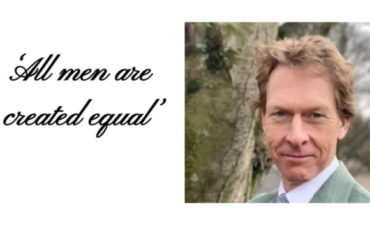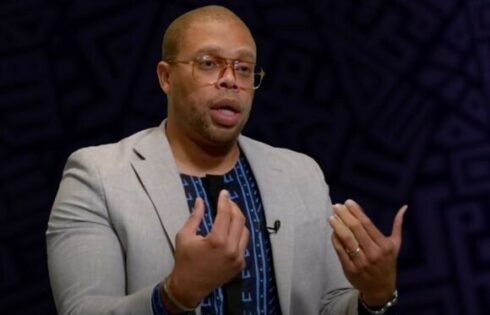
OPINION: The First Amendment exists to protect dissent and divergent opinions, not just ideas that align with rigid campus orthodoxy
The University of Oregon just learned a very costly lesson about free speech.
This cautionary tale began in June 2022, when Portland State University Professor Bruce Gilley responded to a University of Oregon Division of Equity and Inclusion “racism interrupter” post on Twitter by retweeting it with the comment “all men are created equal.”
Ironically, it seems that UO’s definition of “inclusion” didn’t include tolerance for the principle of colorblindness. Rather than recognizing that Gilley’s quote from the Declaration of Independence was protected speech, a university DEI official blocked Gilley from the @UOEquity account.
With the help of the Institute for Free Speech, Gilley filed suit weeks later to challenge UO’s public-forum viewpoint discrimination. At this point, the university had an opportunity to take an obvious “off-ramp” by voluntarily correcting its unconstitutional social media practices. However, instead of acknowledging wrongdoing and agreeing to make changes, UO aggressively litigated a defense.
The case wound its way through the courts for over 18 months. Then, in March 2024, the U.S. Court of Appeals for the Ninth Circuit vacated a lower court’s denial of a preliminary injunction and remanded the case for further proceedings—a signal that the university’s position was constitutionally suspect. Still, UO stubbornly plowed ahead in its defense of the indefensible.
The university passed up yet another off-ramp in July 2024 when U.S. District Judge Marco A. Hernandez granted Gilley a preliminary injunction, preventing the university from censoring Gilley’s posts even if a university official thought they were “hateful,” “racist,” “offensive,” or “off-topic” under the university’s social-media blocking guidelines.
Even after this adverse ruling, the university dragged its feet on resolving the case, with the parties finally reaching a settlement some ten months later, in late March 2025. The agreement required UO’s legal counsel’s office to acknowledge that Gilley’s speech “is constitutionally protected . . . and should not have been blocked” and implement comprehensive reforms, including explicit protection from viewpoint-based censorship, appeals processes for wrongful blocking, and annual First Amendment training for social media managers.
Then, on June 17, 2025, Judge John Acosta awarded $191,000 in attorney fees to Gilley’s legal team. This figure brought the university’s total legal expenses to at least $724,000. The staggering sum reflects both the $533,000 already paid to UO’s own attorneys by November 2024 and the additional fees now owed by UO’s insurer to Gilley’s representatives at the Institute for Free Speech and Angus Lee Law Firm.
Nearly three years of litigation over a blocked re-tweet that even the university admitted should not have happened. A legal bill of almost three-quarters of a million dollars—at least. All to defend the university officials’ ability to censor ideas like “all men are created equal.”
And, after all of that, UO ultimately agreed to implement most of the reforms Gilley sought from the beginning anyway.
Although the university’s insurer will pay the fees, shelling out hundreds of thousands of dollars may well lead to an increase in UO’s insurance premiums, ultimately leaving Oregon taxpayers to pick up that tab. Perhaps most importantly, most of this $724,000 bill might have been avoided if university officials had simply acknowledged the obvious early in the case: blocking someone for quoting the Declaration of Independence violates the First Amendment.
A dedicated belief in a particular set of political viewpoints doesn’t insulate state actors from being held accountable for violating First Amendment rights. When government entities—including public universities—create forums for public discourse, they cannot pick and choose which constitutionally protected viewpoints are allowed to participate.
Other universities should take note: the next time administrators or DEI staffers want to censor someone for expressing an opinion they dislike, remember the lesson the University of Oregon learned the hard way. The First Amendment exists to protect dissent and divergent opinions, not just ideas that align with rigid campus orthodoxy. Independent thinkers like Bruce Gilley have the right to criticize prevailing DEI ideology without getting censored by university officials.
As the University of Oregon discovered, defending obvious constitutional violations isn’t just futile and wrong—it’s prohibitively expensive.
Perhaps the high price of this defeat will make other universities think twice before prioritizing ideology over constitutional principles. Taxpayers and university donors certainly hope they will.
Tom Garrett is the vice president and chief communications officer for the Institute for Free Speech.
IMAGE CAPTION & CREDIT: Bruce Gilley / Courtesy image
Like The College Fix on Facebook / Follow us on Twitter





Please join the conversation about our stories on Facebook, Twitter, Instagram, Reddit, MeWe, Rumble, Gab, Minds and Gettr.